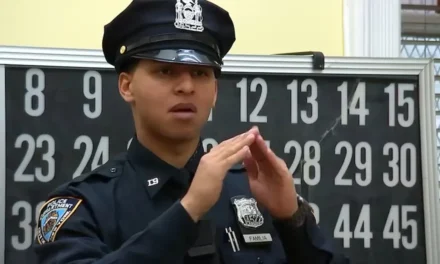Two years ago a debate on what is considered “ASL” amongst attempts to “purify” the language was spotlighted in our community with MJ Bienvenu’s viral video on Facebook. We witnessed a wave of dialogue, both written and signed, on Facebook and face-to-face conversations. Was that debate resolved entirely?
Many strongly feel that it is cultural appropriation to have hearing educators in Deaf Studies and ASL-specific courses. We have the perceived issue of not having enough Deaf teachers, faculty, and adjunct faculty in Deaf Studies and ASL classes in general.
A possible explanation is some candidates have shared that they did not apply for the vacant position(s) because they worry that they will not be considered qualified because they are “Deaf enough” or their signing is not “ASL enough”, and they feel that—in one way or another—the community will look at their students’ signing skills and the extent of their community involvement as a direct reflection of the quality of their teaching. Of course, several factors are behind why we do not have enough Deaf staff in the profession. It is also important to consider the widespread use of online means to reach students who are interested in learning or fine-tuning ASL skills (i.e., YouTube channels, Facebook pages, Instagram TV, websites).
This brings up one question: Who is qualified to teach ASL and/or Deaf Studies? There are Deaf people actively involved in the community who use PSE [Pidgin Signed English], SEE [Signed Exact English], cued speech, and more. What would our criteria be, exactly? Do we have to make sure the candidates are from a residential school for the Deaf to feel that they are an accurate representation of us? From Gallaudet, RIT, or CSU Northridge? From a Deaf family? Does the Deaf person have a linguistics degree that pertains to ASL? Is the Deaf person working as a Deaf interpreter, as a teacher of the Deaf, and/or in direct services for the community? Does the Deaf person stay involved with the local community on an ongoing basis? Are we saying that only Deaf people who are ASL-fluent should teach Deaf Studies and ASL courses?
If so, then how do we define “ASL-fluent”? Who is qualified to determine whether the Deaf applicant is qualified to teach ASL or Deaf Studies classes? Who is qualified to assess the extent of diversity in the curriculum of Deaf Studies and ASL courses at high schools, community colleges, universities, and free public resources (i.e., YouTube, certain websites)? If we say only ASL-fluent Deaf people are qualified for the position within the job description itself, we must acknowledge that this might be excluding candidates of color who use Black ASL, Plains Indian Sign Language, and any other valid sign languages in the United States.
If you would like Deaf Vee Journal to investigate further into this, please contact us directly by e-mail at deafveejournal@gmail.com or Facebook for a research inquiry.





